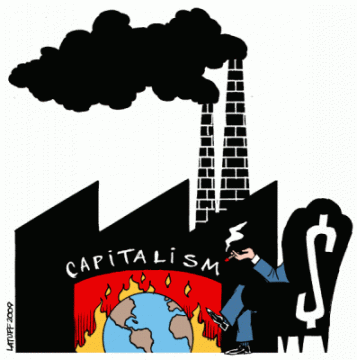Why the World Banks announcement that they are making $200 billion available to help fight climate change may not be such good news after all!
The World Bank announced this week that it is to make about $200bn available to fund action on climate change. In making the announcement, Jim Yong Kim, the president of the World Bank, stated: “This is about putting countries and communities in charge of building a safer, more climate-resilient future.” The announcement has been greeted with universal approval with many arguing that the Bank is taking a strong lead and sending a strong signal to private sector financiers.
But before we all start rejoicing to hard, it is worth noting that the World Bank has a long history of saying one thing and then doing the opposite. For example, in 2015 the very same Mr Kim announced a five-point plan to deliver low carbon growth, including a call to end to fossil fuel subsidies, only for it later to be discovered that the Bank had supported the development of fossil fuels to the tune of $3.4 billion, a 22% increase on the previous year.
That the World Bank is making announcements about saving the planet, while behind the scenes helping to destroy it, should not come as a shock. In 2016, it was disclosed that the Bank had been helping to finance a new generation of coal power plants and other fossil fuel projects in Bangladesh, India, and the Philippines. In 2017 it was found that the World Bank had created incentives for coal, oil and gas investments in Peru, Indonesia, Egypt and Mozambique.
In 2017, Oil Change International, discovered that, in 2016, the Multilateral Investment Guarantee Agency (MIGA), a member of the World Bank Group, had invested $1.9 billion in energy, of which $0.9 billion went to fossil fuel projects, with not a single penny being spent on alternative energies, such as solar, wind or geothermal energy. The other $1 billion was spent on projects such as large hydroelectric dams, no longer classed as green energy, due to the fact they can seriously damage the climate, by driving deforestation and releasing carbon dioxide and methane.
Nor does the World Bank’s negative effect on the climate end there. The bank has a long history of supporting large-scale civil engineering projects that can have devastating effects on the environment and local communities. In the last decade, it is estimated that 3.4 million people have been displaced by Bank-funded projects. For example, the Bakun hydroelectric dam project, in East Malaysia, displaced almost 10,000 people. Not that this has deterred the World Bank from backing so-called “mega corridors”. These are massive projects involving transport, inter-basin water transfers, ports, pipelines and industrial zones. Part of the aim of which is to enable the opening up of oil and mineral extraction in areas previously considered unexploitable. Another aim to enable capital to move wherever labour is cheapest and most easily exploited.
In December 2017, in a report that focused on “mega corridors” published by Belgian-based CSO Counter Balance, highlighted the contradictions between the Worlds Bank’s push for a new generation of ‘mega-infrastructure’ and effective climate action noting “The building of planned mega corridors would … mean locking-in the current extractivist development model. This agenda … is largely reliant on fossil fuels, mining and large-scale agribusiness. …it is fundamentally incoherent with the fight against climate change.”
The report went on to note “No continent (apart from Antarctica) is excluded. From Africa to Asia and the Arctic to South America, infrastructure masterplans have been drawn to reconfigure whole land masses (and the seas connecting them) into ‘production and distribution hubs’, ‘transit zones’, ‘development corridors’, ‘export zones…..millions of people will be affected, shifted to make way for roads, ports, trains and airports or transformed into pools of cheap labour for the mines, plantations and factories. ”
Seen in this light, the announcement by the World Bank that they are making available $200 billion to invest in fighting climate change is perhaps not such great news after all!!!
For more info on mega corridors go to:
http://www.counter-balance.org/new-study-challenges-the-infrastructure-m...
Recent articles
Other Posts
| The Ukraine War and the Hypocrisy of Politicians (posted 8. March) |
| STUDENTS DON’T CROSS THE PICKET LINE - STAY OUT OF UNI ON THE 28th FEB & 2nd MARCH ! (posted 27. February) |
| Busy Day in Manchester For Demonstrations (posted 27. February) |
| Direct Action Gets the Goods For Greater Manchester Striking Bus Drivers (posted 4. February) |
| Unemployment: The Reality Behind Boris Johnsons Lies (posted 1. February) |
